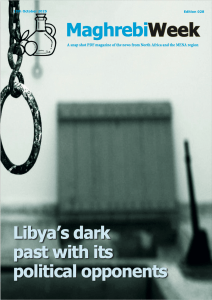Egypt to adopt central role in overseeing Gaza peace plan

Egypt is expected to adopt a central role in implementing US President Donald Trump’s Gaza peace plan over the next coming months, according to The New Arab plus agencies on October 13th.
US Middle East envoy Steve Witkoff told Egyptian President Abdel Fattah El-Sisi that his support was crucial in cementing the deal, signifying an awareness that Cairo’s consent and willingness to contribute is integral to the plan’s execution.
Before the current peace talks commenced, Egyptian Foreign Minister Badr Abdelatty was reportedly highly influential in convincing Hamas to commit to serious negotiations.
He coordinated with Turkey and Qatar to adequately address the group’s apprehensions, such as securing a permanent ceasefire and total Israeli military withdrawal. In a statement likely to be designed to reassure the US, he also said that “Hamas has no role in the day after” in Gaza, which could be a dealbreaker for Israel if not successfully accomplished.
One of Egypt’s anticipated responsibilities in the upcoming months is to ensure the smooth disarmament of Hamas and help to gradually hand power over to a reformed Palestinian Authority.
The onus to oversee such an integral and contentious element of the deal has likely been placed on Cairo as it, alongside Qatar and Saudi Arabia, was amongst the first Arab states to ever call for Hamas to disarm, according to CNN on July 30th .
Ahmed Abdel Meguid, an Egyptian political analyst, told TNA that “Egypt insists on ending Hamas’s rule of Gaza as a way of ending the conflict” because the militant group “has offered the Palestinians in the past years, since it has taken over Gaza, nothing but wars and destruction.”

Egypt is expected to offer a contingent of trained security personnel to compose a larger force, which also includes 200 US troops, that will monitor the ceasefire agreed upon in the Egyptian Red Sea resort of Sharm el-Sheikh on October 9th.
Despite the current lack of information on the specific duties of the force, it is reported that it will be installed to prevent arms smuggling into Gaza whilst leading efforts to locate the remains of deceased Israeli hostages amidst the rubble.
Abdelatty revealed on August 14th that 5,000 Palestinian Authority security personnel were being trained in Egypt to eventually manage Gaza’s security administration in an effort to avoid a security vacuum lest armed militias form amidst an anarchic enclave.
Indeed, security analysts highlighted that considerable Egyptian concerns over the security climate of a post-withdrawal Gaza, which Egypt shares a 13-kilometre border with, are the catalyst behind Cairo’s eagerness to contribute to the force.
Retired Egyptian army general Nasr Salem told The New Arab that “there is an urgent need for the presence of an international force in Gaza after Hamas abdicates power and Israel withdraws.”
He added that “Egypt will be part of this force to ensure that there will not be a security vacuum in Gaza, one that threatens its borders.”
During peace negotiations with US, Qatari, and Turkish officials, Egypt firmly opposed the prospect of taking sole responsibility for the administration and securitisation of Gaza, arguing that such responsibilities must be taken by Palestinians themselves, according to Chatham House on October 9th.
Cairo also strictly ruled out any mass displacement into the Egyptian Sinai Peninsula, even if temporary. In mid-August, 40,000 Egyptian troops were deployed to the Gaza border over suspicions that Israel was planning to ethnically cleanse Gazans into North Sinai.
To compound the security concerns, Egypt has long been pressuring Israel to allow sufficient humanitarian aid to enter Gaza, a demand that has finally been heard and implemented ever since the first phase of the ceasefire commenced on October 10th.
The amount of aid trucks entering Gaza will be scaled from an initial amount of 400 a day to 600 a day, delivering medical supplies, temporary housing, and food. The steady supply is expected to gradually alleviate the hostile living environment in Gaza caused by Israel’s campaign to destroy the conditions needed to sustain human life.
The humanitarian relief is to precede reconstruction efforts, which will broadly be modelled on a plan formulated by Egypt in March. It strictly rules out the temporary relocation of residents during the process. The project is estimated to cost $53 billion and will aim for completion by 2030.
The New Arab plus agencies, Maghrebi.org, CNN, Chatham House
Want to chase the pulse of North Africa?
Subscribe to receive our FREE weekly PDF magazine














